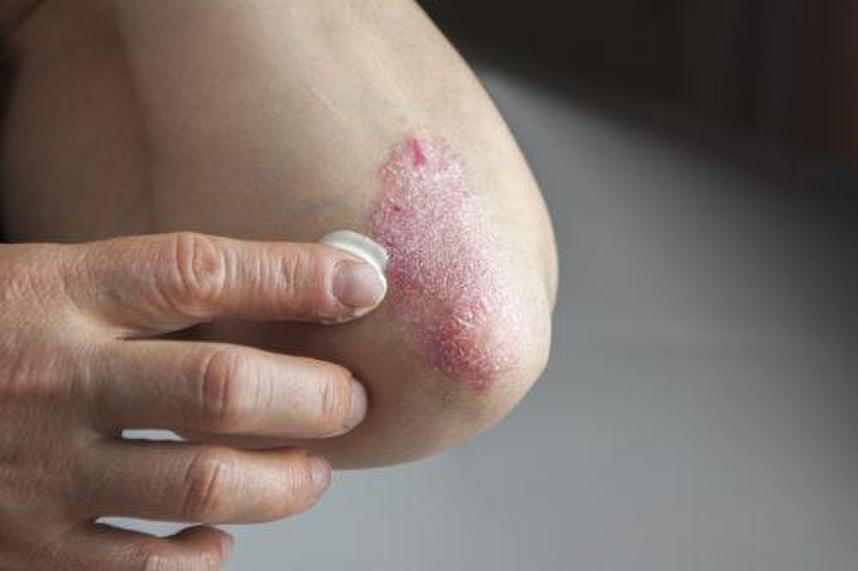When the skin reacts to allergens or irritation, skin cells produce various inflammatory chemicals that cause skin to become red, swollen, and itchy. Hydrocortisone, an OTC (over-the-counter) mild topical corticosteroid, reduces inflammation of the skin by stopping inflammatory chemicals from being released, eliminating the urge to scratch. Scratching causes the skin to become raw, swollen and sensitive, and promotes further itching and scratching.

Topical hydrocortisone, applied to the skin in the form of creams, lotions, and ointments, helps control and relieve flare-ups due to mild forms of eczema, seborrheic dermatitis, and psoriasis. These skin conditions are chronic, long-term, and can affect all age groups.
Eczema – a skin condition that exhibits itself as red, thick, cracked, dry, scaly skin patches that itch. Also referred to as atopic dermatitis, it is typically the result of an overactive response of the immune system to an environmental irritant. Eczema can spread to various parts of the body including the face, neck, wrist, hands, ankles, knees, and elbows.
Psoriasis – the result of an immune system condition that makes skin cells develop more rapidly and build up on the skin surface. The body is unable to shed cells as fast as they produce. Thick red, itchy, patches covered by silvery scales form on the skin. Psoriasis is most commonly found on joints and the hairline.
Seborrheic Dermatitis – an inflammatory skin condition associated with over active oil glands of the body. Patches of greasy, red inflamed skin covered with flaky white or yellow scales appear on the scalp, face, ears, chest, back, scrotum and other oily parts of the body. A common condition also known as dandruff, cradle cap, seborrheic eczema, and seborrheic psoriasis.
Although these skin conditions are not contagious and are not caused by poor hygiene, they can be very uncomfortable and embarrassing. Most of these skin conditions go through cycles of flare-ups and remissions. Getting relief from the itch can be challenging.
While there is no cure, there are ways to minimize and treat symptoms.
- Know your triggers and avoid them.
- Use skin care products that are free of harsh soaps, fragrances, and other common chemical irritants , to help prevent flare-ups.
- Try over-the-counter topical medications to help manage inflammation and itch such as topical hydrocortisone cream .
Always consult a dermatologist for an individual treatment plan, especially when symptoms become uncontrollable.
Ref: mayoclinic.org/diseases-conditions
